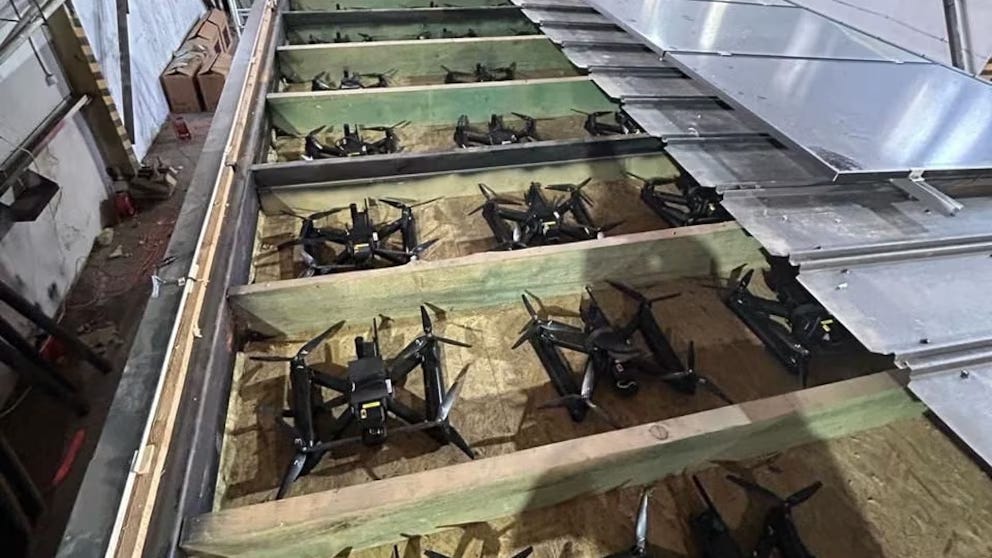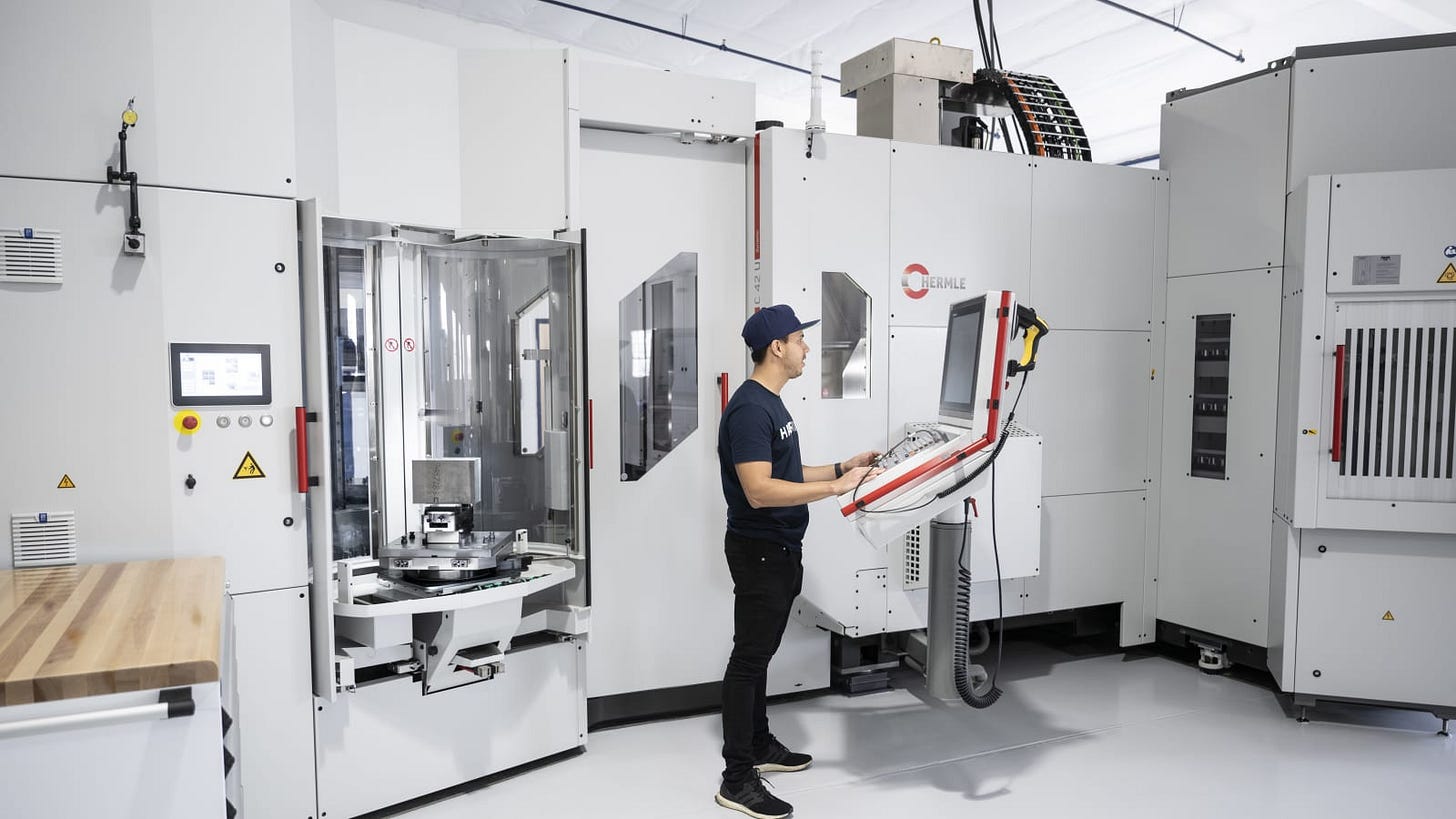This edition is a bit different from the others: instead of complaining about stuff, this time I’ll be proactive and propose a solution.
Read on and let me know what you think. Happy to discuss more at ricciuti_dot_fr_at_gmail_dot_com
My partner in ROI Chris edited this piece while wondering what's happening to journalism amid AI-motivated layoffs. Ping us/him if you have any thoughts...
I usually resist generalizing anecdotal evidence to broad societal trends, but in this case it helps to convey my message so I’ll break my self-imposed rule. To my memory, no one in my high-school class, NO ONE, has built anything in the five years we studied together.
By building, I mean the old-fashioned practice of using your hands to work on or assemble a physical object.
If you’re wondering, I didn’t expect my friends to be modern takes on Leonardo Da Vinci and build a helicopter out of wood, but there are many things teenagers could dabble in like fixing a bike, creating small automations with Arduino, or simply building a treehouse.
And yes, I understand it might have to do with where we come from, with the kind of opportunities around us, and even with the physical space we grew up in, but it still feels odd to me.
Truth is that building stuff was not sexy anymore, and that makes a lot of sense given the service economy in which I grew up. Our parents were not building things, people we followed online made money with courses and drop-shipping, anything we owned was so cheap to buy that there was no point in fixing, and we therefore stopped thinking about building stuff and started thinking about building apps.
In an economy that outsources the building part and that is built around services, it's totally fine to abandon building and become a consultant, banker, accountant, marketing specialist, or maybe to learn how to code and become a software engineer.
Question from the public: “How far do you believe we are from having an AI operating 24/7 at the level of a junior engineer?”
Jeff Dean, Chief Scientist at Deep Mind: “Not that far. […] I will claim that’s probably possible in the next year-ish”
Source
Whether you think 12 months or so is accurate or not, the important thing here is not when it happens, but if it happens or not, and what happens next.
The way the software world is organized will change (or has it already?), and while I wouldn’t necessarily bet on how it will precisely change, I think it will directionally go towards a world with less “juniors”.
This fact probably has implications at every step of the ladder - every senior was once a junior after all - but we will start to see the effects on new grads first.
In fact, some say we have already started to see them:
And employers are saying the quiet part out loud: 70% say AI can already replace an intern. 78% plan to cut or eliminate graduate hiring altogether because of it.
Young People Can't Get Jobs. Now What?
Since the first industrial revolution, new technologies have gradually automated tasks previously done by humans - and have brought with them fears of unemployment. I’m a roboticist, and I’ve heard the argument that automation would be a net-bad for the society countless times.
Techno-optimists have always rejected these fears with the argument that technology doesn’t decrease the absolute number of jobs, but replaces automation-prone jobs with something more “human” and intellectually challenging. If this is true, they argue, automation just changes the nature of employment for the best, being a net-good for the society.
Although I have never seen data that undisputedly confirm or deny neither of the two theories, probably because of my cultural upbringing I tend to agree with the techno-optimists.
However, change of any sort - good or bad that is - brings with it opportunities. And this AI revolution is coming at a point in time in which the West needs change.
Our economies were built on hardware, but somehow we got lost along the way. Hardware is not sexy anymore - no wonder high school kids today prefer to spend time in the software world instead of building stuff.
How do we prepare them for a future where we need to get back to building?
One of the reasons why manufacturing tends to happen in clusters is that it is fueled by process knowledge, “the kind of knowledge that’s hard to write down as an instruction” (source).
It takes time to build process knowledge, and for it to persist an overlap between the old generation of workforce and a new one is required.
In the West, we have lost a lot of that process knowledge that we were so envious of, and that’s very clear in sectors that require a lot of it. Nuclear reactors, for example.
However, as Russian invasion of Ukraine has made very clear, bad things can serve as inflection points and necessity accelerates the formation of these process knowledge clusters: if we were talking about drones three years ago, nobody would’ve thought of Ukraine as one of the most advanced countries in the world at producing them. Yet here we are:
This is the opportunity I was talking about: getting juniors, those juniors that can’t find jobs anymore in the world of bits and software, to be excited about the world of atoms: this would help us reshore manufacturing, give fresh fuel to the diffusion of process knowledge, and would help us the sci-fi future the kids in the ‘60s were dreaming of.
How do we get kids to do something like this?
Before returning to my proposal, I want to address a common misconception.
By “getting back at building” I don’t mean this:
I mean this:
The way we build things has (luckily) changed, and now requires a highly skilled and educated workforce.
I’m not an expert in education, and I won’t venture in saying which is the best way to organize an education system to train these people. Germany has been successful with its Vocational Training System, while China has trained armies of engineers with very specific majors from university.
I’m fine with whatever works, as long as we get enough young kids excited to explore that route. You can have the world's best education system, but you will fail if your kids queue up the marketing department and don’t consider the rest.
This brings me to my main proposal:
A no-profit organization giving mini-grants to high school kids to build stuff.
It could work in the following way:
€500 grants
Kids would need to submit a detailed proposal of what they want to build and what they would need to do so
No limits to what they can build but it must have hardware components, and the hardware needs to be built by the kids themselves
As a consequence of the point above, we would fund only CAPEX
Kids would agree to a deadline and a reporting schedule, as this would keep them accountable
There should be a way to enforce the point above - not sure what that looks like, maybe dividing the grant in tranches and paying it out when certain milestones are achieved
It would be great to provide them with mentorship of some sort. This would probably depend on how good we are in bringing people to contribute to the cause - with their time, if not with their money,
It would be great to provide them with a physical space to use. First thing that comes to my mind is the worldwide network of fablabs - a partnership with local fablabs would be the best option to provide tools and knowledge,
Since there should be some effort boots on the ground, and because of the point above, season 0 of the program would be focused on one city in one European country - unless it grows fast enough to allow boots on the ground in several cities at the same time
An initiative like this would help these kids get excited by the world of atoms, test their skills with things that most high schools in Europe (certainly in Italy) don’t train, and hopefully influence their choice of how to spend their time post-high school.
If such a thing takes off, there are thousands of different ways to make it evolve - I can think of partnerships with companies to provide tools (Arduino and/or Raspberry Pi: if you’re reading this, hit me up!), partnerships with companies to provide problems to solve, mentorship and internship opportunities, maybe even a small VC fund to back the craziest among these kids.
Or maybe there’s nothing behind it, nothing behind the main goal of having these young minds employed in the right sectors.
This is why the only metric I would track to define success is: how many of these kids, a few years after the grant, spend most of their time building in atoms instead of bits?






